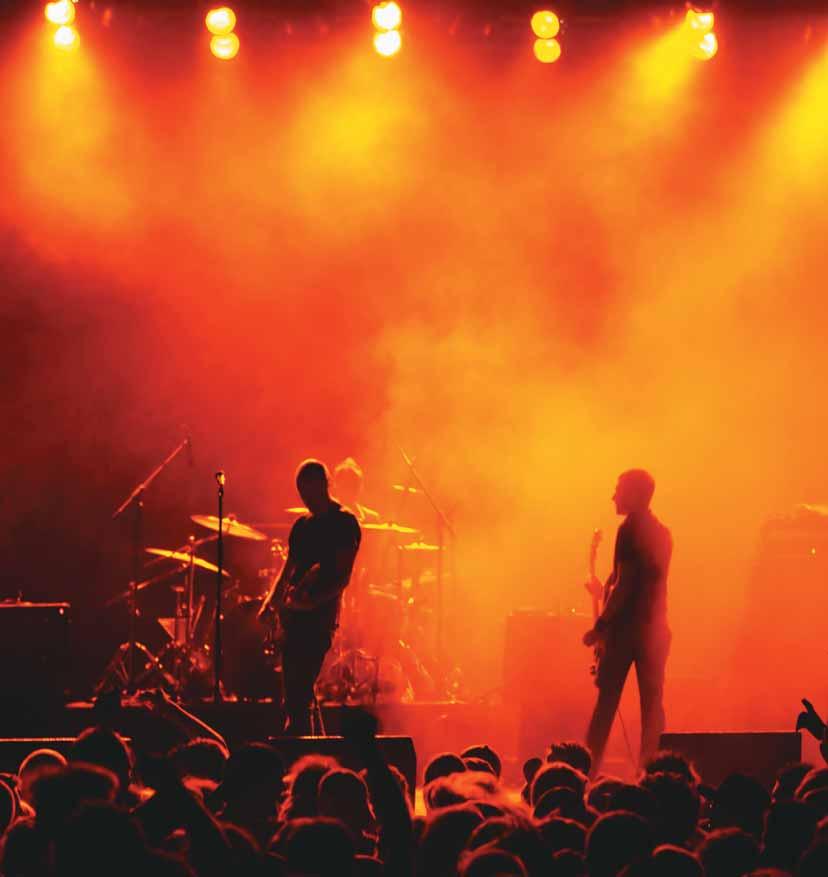
4 minute read
From the Publisher
Published by Australian Leisure Media Pty Ltd, 45/30 Nobbs Street, Surry Hills, NSW 2010 (PO Box 478, Collaroy, NSW 2097) AUSTRALIA
ABN 32 092 549 721 Tel: 02 8018 6808 E-mail: leisure@ausleisure.com.au www.ausleisure.com.au Facebook: www.facebook.com/AusLeisure Editor Karen Sweaney Publisher Nigel Benton Design Australian Leisure Media Pty Ltd Contributors James Croll and Gwen Luscombe Advertising Inquiries Nigel Benton Tel: 0411 551 731 Email: nigel@ausleisure.com.au James Croll Tel: 0488 090 904 Email: jcroll@ausleisure.com.au
Advertisement
Printed in Australia by Pegasus Print Group Building B, 1A Bessemer Street, Blacktown NSW 2148 Tel: 02 8822 0600, www.pegasusprintgroup.com.au
Annual subscriptions cost $99 in Australia and New Zealand. Details at subscribe.ausleisure.com.au or call 02 8227 6486.
Members of AALARA, ARNA, ASPA, ASSA, EVANZ, ExerciseNZ, IAKS, LIWA Aquatics, the Sports and Play Industry Association and the VMA receive the magazine as a membership benefit.
The views contained in Australasian Leisure Management are not necessarily those of Australian Leisure Media Pty Ltd or the Editor. While every care is taken with advice given, Australian Leisure Media Pty Ltd and the Editor can take no responsibility for effects arising therefrom. Views expressed by contributors may be personal and are not necessarily the views of their employers or professional associations.
© Australasian Leisure Management, 2022. ISSN 1446-1374
Offi cial Publication
In Association with
Australasian Leisure Management is an Australian product, Australian owned and printed in Australia.
Sponsorship, opinions and the need for true engagement
As we complete this magazine, sponsorships in sport and the arts by energy and mining companies has been spotlighted in reports following Australian Diamonds players having refused to wear branding from mining company Hancock Prospecting on their uniforms during their Constellation Cup netball series against New Zealand.
Later it emerged that the refusal to wear Hancock Prospecting’s branding more related to comments made by the company’s founder Lang Hancock in the 1980s when he suggested that some Aboriginals be sterilised in order to “breed themselves out”.
The fast moving issue saw Hancock Prospecting withdraw vital sponsorship from Netball Australia, although, as I write, this funding appears to have been replaced by the Victorian Government’s tourism agency Visit Victoria.
Subsequently it emerged that Cricket Australia will end its partnership with Alinta Energy at the end of the contract period next June; oil and gas company Woodside Petroleum advised that it will not extend its multimillion-dollar sponsorship of the AFL’s Fremantle Dockers beyond the 2023 season and oil and gas company Santos declared that it will no longer sponsor the opening night of the Darwin Festival having, in January ended its sponsorship of the Australian Open after just one year.
For a long time, energy and mining companies have been significant sponsors in the arts and sport and the actions of environmental activists, who paint such partnerships as ‘sportswashing’ (the term used to describe the practice of individuals, groups, corporations, or governments using sponsorships and other means to improve reputations) has the potential to halt valuable income streams.
Nonetheless, prior to it being banned in the early 1990s, tobacco sponsorship of sport and the arts was seen as vital, but, once removed the sector adapted. What the Players and Artists think The changing climate in sponsorship highlights that not only external factors are at play, but the attitudes of stakeholders.
Prior to this year’s Sydney Festival, artists objected and then withdrew from the program over sponsorship by the Israeli Embassy.
In July, the move by the Manly Warringah Sea Eagles to wear a pride jersey in an NRL fixture saw seven players announced they would not play in what was a key match.
With Manly becoming the first team in the competition ever to wear a kit which promotes LGBTQI+ inclusivity in the sport, the players said they wouldn’t wear the jersey - claiming that they objected to the move on religious and cultural grounds, as well as not having been consulted.
A weakened Manly lost the match against the Sydney Roosters, ending their Finals series hopes.
In October, the AFLW’s first-ever Muslim player, Haneen Zreika, pulled out of the GWS Giants’ Pride Round (celebrating the LGBTQI+ community) fixture due to religious beliefs.
What emerges from this is that sports, leagues, clubs and events can no longer assume that the sponsorships and causes that they promote and sign up to will be agreed to by their players, participants and stakeholders.
And in an age of increasingly polarised opinions that can be shared across social media and multiple public forums, there is massive potential for embarrassing and divisive public disagreement. Engagement is a term that is widely used across this industry, but mainly in an external sense. What the industry needs to act on in sponsorship is genuine engagement with all stakeholders to make sure all are on board before disagreements cause discord and embarrassment.














